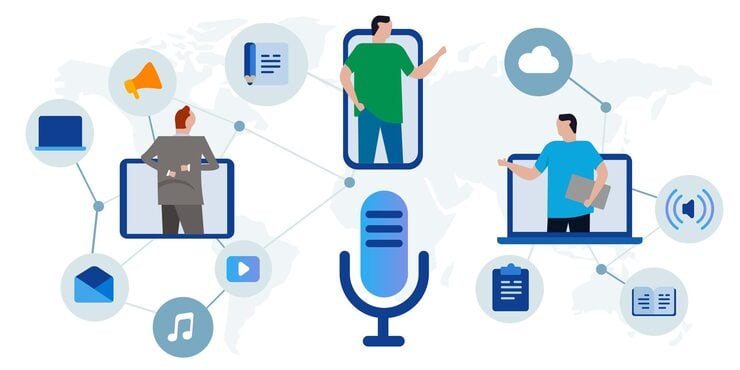
Close
The remote work environment has evolved dramatically over the past few years, transforming from a niche arrangement into a mainstream mode of operation for countless organizations worldwide. This shift has been propelled by advancements in technology, which have made it easier than ever for employees to connect, collaborate, and contribute from virtually anywhere. The rise of cloud computing, video conferencing tools, and project management software has created a landscape where physical presence is no longer a prerequisite for productivity.
As a result, businesses are now able to tap into a global talent pool, allowing them to hire individuals based on skills and expertise rather than geographical limitations. This newfound flexibility not only enhances the diversity of teams but also fosters innovation, as varied perspectives and experiences come together to solve complex problems. However, the transition to remote work is not without its challenges.
Organizations must navigate the intricacies of managing a distributed workforce, which can lead to feelings of isolation among employees and difficulties in maintaining a cohesive company culture. The absence of face-to-face interactions can hinder relationship-building and make it challenging for team members to feel connected to one another and the organization as a whole. Additionally, remote work can blur the lines between personal and professional life, leading to burnout if not managed effectively.
To thrive in this environment, companies must adopt a proactive approach that prioritizes employee well-being while simultaneously fostering an atmosphere of collaboration and accountability. Understanding these dynamics is crucial for leaders aiming to create a successful remote work culture that not only meets business objectives but also supports the needs of their employees.
The success of any remote team hinges significantly on the quality of its members. Hiring the right talent is paramount, as remote work requires individuals who are not only skilled in their respective fields but also possess the self-discipline and adaptability necessary to thrive in a virtual environment. When seeking candidates for remote positions, organizations should prioritize traits such as strong communication skills, time management abilities, and a proactive mindset.
These characteristics are essential for ensuring that team members can effectively collaborate across different time zones and maintain productivity without direct supervision. Moreover, it is vital to assess candidates’ comfort with technology and their ability to navigate various digital tools that facilitate remote work. In addition to evaluating technical skills and personal attributes, companies should also consider cultural fit when hiring for remote teams.
A candidate who aligns with the organization’s values and mission is more likely to contribute positively to team dynamics and foster a sense of belonging among colleagues. To achieve this, organizations can implement structured interview processes that include behavioral questions designed to gauge how candidates have handled remote work situations in the past. Furthermore, involving current team members in the hiring process can provide valuable insights into how well potential hires may integrate into the existing team culture.
By taking a comprehensive approach to recruitment, organizations can build a remote workforce that is not only competent but also cohesive and engaged.

Effective communication is the backbone of any successful remote team. In a virtual environment where face-to-face interactions are limited, establishing clear communication channels becomes essential for ensuring that information flows seamlessly among team members. Organizations should invest in a variety of communication tools that cater to different needs, such as instant messaging platforms for quick exchanges, video conferencing software for more in-depth discussions, and project management tools that allow for asynchronous updates.
By providing team members with multiple avenues for communication, organizations can accommodate diverse working styles and preferences while fostering an inclusive atmosphere where everyone feels empowered to share their thoughts and ideas. Moreover, it is crucial to establish guidelines around communication practices to minimize misunderstandings and ensure that all team members are on the same page. This includes setting expectations regarding response times, preferred communication methods for specific situations, and regular check-ins to maintain alignment on projects and goals.
Encouraging open dialogue and feedback can also help create a culture of transparency where team members feel comfortable voicing concerns or asking for assistance when needed. By prioritizing effective communication channels and practices, organizations can enhance collaboration among remote teams, ultimately leading to improved productivity and job satisfaction.
In a remote work environment, clarity is key. Setting clear goals and expectations is essential for guiding team members toward achieving desired outcomes while minimizing ambiguity that can lead to frustration or disengagement. Organizations should adopt a goal-setting framework that aligns individual objectives with broader company goals, ensuring that every team member understands how their contributions impact the overall success of the organization.
This alignment not only fosters a sense of purpose but also encourages accountability among team members as they work toward shared objectives. To facilitate this process, leaders should engage in regular goal-setting sessions with their teams, allowing for collaborative input and discussion around priorities. These sessions can serve as an opportunity to establish key performance indicators (KPIs) that will be used to measure progress and success over time.
Additionally, it is important to revisit these goals periodically to assess progress and make adjustments as needed based on changing circumstances or new information. By maintaining an ongoing dialogue about goals and expectations, organizations can create an environment where team members feel empowered to take ownership of their work while remaining aligned with the organization’s vision.
In the realm of remote work, project management tools play a pivotal role in streamlining workflows and enhancing collaboration among team members. These digital platforms provide a centralized space where teams can plan, execute, and monitor projects in real-time, regardless of their physical locations. By utilizing project management software, organizations can assign tasks, set deadlines, track progress, and share important documents all in one place.
This level of organization not only improves efficiency but also reduces the likelihood of miscommunication or missed deadlines that can occur when teams rely solely on email or informal messaging. Moreover, project management tools often come equipped with features that promote transparency and accountability within teams. For instance, many platforms allow team members to comment on tasks or provide updates on their progress, fostering an environment of collaboration where everyone is aware of each other’s contributions.
Additionally, these tools can facilitate better resource allocation by providing insights into workload distribution across the team. By implementing effective project management solutions tailored to their specific needs, organizations can enhance productivity while ensuring that all team members remain engaged and informed throughout the project lifecycle.

Fostering collaboration and engagement within remote teams requires intentional efforts from leadership and team members alike. One effective strategy is to create opportunities for informal interactions that mimic the spontaneous conversations that often occur in traditional office settings. Virtual coffee breaks, team-building activities, or casual chat channels can help break down barriers and encourage relationship-building among colleagues who may not have the chance to connect face-to-face.
These informal interactions are crucial for cultivating camaraderie and trust within teams, ultimately leading to improved collaboration on work-related tasks. In addition to promoting social connections, organizations should also prioritize collaborative projects that require input from multiple team members. By assigning cross-functional tasks or encouraging brainstorming sessions where everyone contributes ideas, leaders can create an inclusive environment where diverse perspectives are valued.
Furthermore, recognizing and celebrating individual and team achievements can significantly boost morale and motivation among remote workers. Whether through shout-outs during team meetings or virtual recognition programs, acknowledging contributions fosters a sense of belonging and reinforces the importance of teamwork in achieving collective goals.
While remote work offers numerous advantages, it also presents unique challenges that organizations must address proactively to build a strong team culture. One common hurdle is the potential for feelings of isolation among employees who may struggle with the lack of in-person interactions. To combat this issue, leaders should prioritize initiatives that promote connection and support mental well-being.
Regular check-ins with team members can provide opportunities for open discussions about challenges they may be facing while working remotely. Additionally, offering resources such as mental health support or wellness programs can demonstrate an organization’s commitment to employee well-being. Building a strong remote team culture also involves creating an environment where feedback is encouraged and valued.
Leaders should foster a culture of continuous improvement by soliciting input from team members on processes, tools, and overall experiences within the remote work setting. This feedback loop not only empowers employees but also helps organizations identify areas for enhancement that can lead to increased engagement and satisfaction among remote workers. By addressing challenges head-on and cultivating a supportive culture that prioritizes connection, feedback, and well-being, organizations can create a thriving remote work environment where employees feel valued and motivated to contribute their best efforts.
If you’re looking to build a successful remote software development team, understanding how to choose the right IT staff augmentation partner is crucial. An excellent resource that delves into this topic is an article titled “How to Choose the Right IT Staff Augmentation Partner.” This article provides detailed insights into selecting a partner that aligns with your project needs and goals, ensuring that your remote team is efficient, skilled, and well-coordinated. You can read more about this essential aspect of building a remote team by visiting How to Choose the Right IT Staff Augmentation Partner. This guide will help you make informed decisions, contributing to the success of your remote software development initiatives.
A remote software development team is a group of software developers and other professionals who work together on a software project from different locations, often using online collaboration tools and communication technologies.
Building a remote software development team can provide access to a wider talent pool, reduce overhead costs, increase flexibility, and promote a better work-life balance for team members.
Challenges of building a remote software development team include communication barriers, time zone differences, cultural differences, and the need for effective project management and collaboration tools.
To successfully build a remote software development team, a company should focus on clear communication, establishing trust, setting clear expectations, providing the right tools and resources, and fostering a strong team culture.
Best practices for managing a remote software development team include setting regular check-ins, using project management tools, providing opportunities for team building and professional development, and being mindful of work-life balance.
Augmented Team Pvt Ltd

